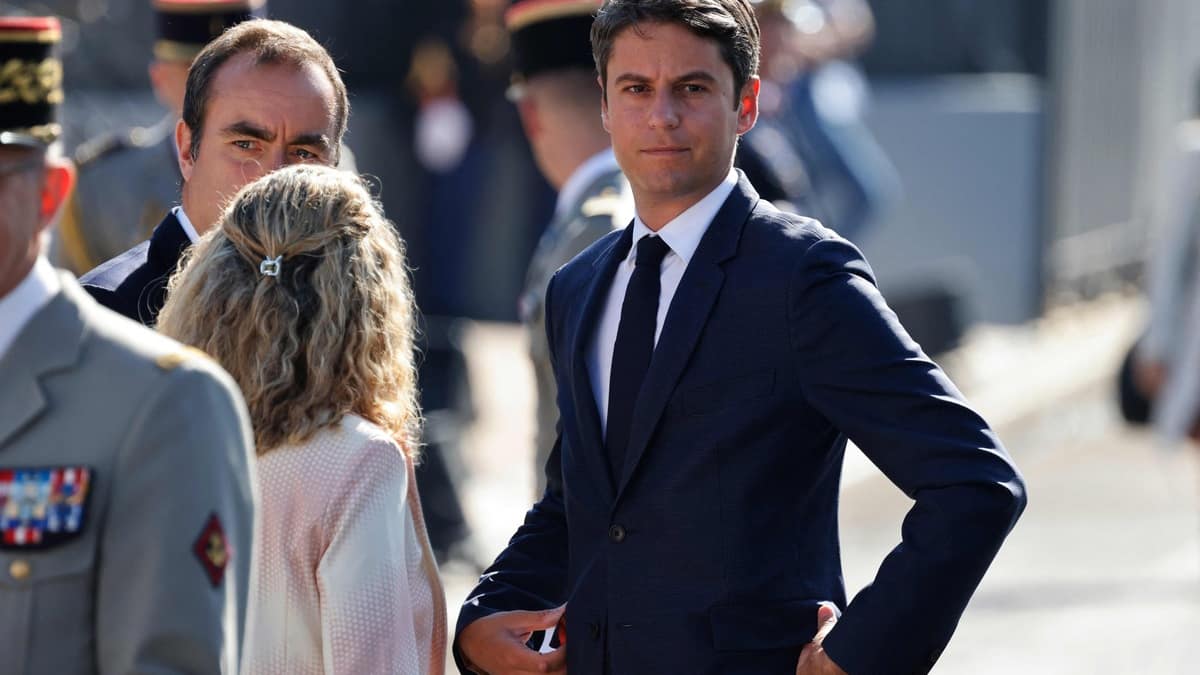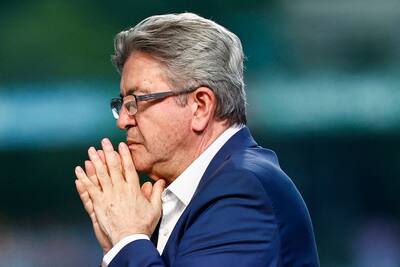
The French government will resign on Tuesday evening after Prime Minister Gabriel Attal failed to secure a majority for the presidential camp in legislative elections, but will remain in charge of current affairs for “a few weeks”, possibly until the end of the crucial Olympic Games organized in France from July 26 to August 11.
• Read more: Legislature: Gabriel Attal was officially elected president of the Renaissance Deputies
• Read more: France: Macron breaks silence, calls for a broad coalition
Around French President Emmanuel Macron, the government held its first cabinet meeting at the Élysée after his party’s bitter defeat in early legislative elections in June.
In the legislative elections, the left-wing coalition of the New Popular Front (NFP) won more seats, but it did not gain an absolute majority in the National Assembly, which is now divided into three blocs: the NFP (190 to 195 seats), followed by the center-right presidential camp (about 160 seats), and the far right and its allies (143 seats).
Mr. Macron suggested at the cabinet meeting on Tuesday that this situation of a resigning government – therefore with a minimal political role – would last “for a limited time”, “a few weeks”, probably until the end. Fewer Olympic Games, according to participants interviewed by AFP.
The new structure will ensure “the minimum functioning of the French state, in the name of continuity,” explained a note from the Secretariat of Government (SGG) dated July 2.
On Tuesday, Mr Macron thanked the ministers. Gabriel Attal, for his part, spoke to the members of the government and the head of state of his “recognition”, “interest in France” and his “duty”, “including the specific period we have to go through”. ,” said a minister.
Another participant explained that despite the now stark differences between the two chief executives since the dissolution of the legislature and the expected legislative elections, “there is no tension or outbursts.”
The resignation will allow government-chosen members of the House of Representatives to regain their parliamentary mandate to participate in Thursday’s election for the presidency of the National Assembly, a highly strategic position nicknamed the negotiating perch.
A split left
This interim period gives the various political groups some time to build compromises and form alliances.
The presidential camp is trying to build an alternative majority for the left: once again, the focus is on the right-wing Les Républicains party and their forty representatives.
Emmanuel Macron assessed at the cabinet on Tuesday that his camp “must put a plan on the table with the aim of a majority coalition or a broad legislative agreement,” according to one attendee.
On the left, discussions to submit a candidate for prime minister continue to be tense, with La France Insumais (LFI – Far Left) leader Jean-Luc Mélenchon refusing to pursue them until there is a common candidate. Perch not seen.
Socialists, Communists and Environmentalists returned the blame Monday evening by nominating Matignon, 73, a climate expert who describes herself as a “left-wing woman and environmentalist.”
But this option was brushed aside by the LFI, with Manuel Bombard, the movement’s coordinator, deeming it “not serious”.
At the heart of the political uncertainty, one thing is certain for the future French government: it will receive public funding again and again.
In a bold report presented on Monday, the Court of Auditors drew a worrying assessment, while France’s debt increased to almost 3.160 billion euros at the end of March (or almost 111% of GDP, against 60% by European standards). Pier Moscovici, president of the Court of Auditors, warned that the need to reduce this debt “must be shared” by all political forces.





More Stories
More than 200 former Republican aides back Kamala Harris | US Election 2024
An investigation into the ill-treatment of the Lev Tahor sect in Guatemala
Brossard is suspected by the US of supporting Russia’s war effort